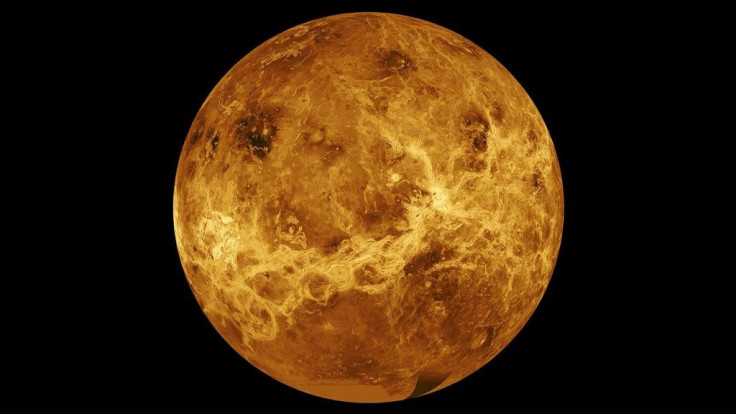Life Not Possible In Venusian Clouds, But May Exist In Jupiter's: Study
KEY POINTS
- Researchers studied water activity on Venus' clouds
- They found that its water conditions are far from what life requires to be active
- However, the conditions on Jupiter's clouds may allow for Earth-like life
Can there really be life on Venus? Researchers of a new study found that its water conditions can't support even the most tolerant microbes on Earth.
In 2020, the Earth's "evil twin" became a hot topic after researchers announced the detection of phosphine in Venus' atmosphere, suggesting that there may be traces of microbial life on the planet. This led to a whole new interest in missions to Venus, even after the researchers' reanalysis of their data revealed that the signal was actually a few times fainter than in their original report.
Now, a team of researchers focused on another factor that may influence whether Venus' atmosphere may actually be able to support life: water. For the study, published in the journal Nature Astronomy, the researchers looked at existing measurements of Venusian atmosphere's pressure, temperature and water-vapor abundance, reported Space.com. These were taken by seven U.S. and Soviet probes, as well as an orbiter mission, according to Phys.org.
'Unabridgeable distance' from the requirements for life
The researchers showed that it's not necessarily the amount of water that matters when it comes to making life "viable," Queen's University Belfast noted in a news release. Instead, it's the so-called water activity or the "effective concentration of water molecules."
In the case of Venus, the researchers found that water activity in its atmosphere is at 0.004. By comparison, the driest conditions or the "lowest survivable" value for water activity on Earth is at a much higher 0.585.
"We find water-activity values of sulfuric acid droplets, which constitute the bulk of Venus's clouds, of ≤ 0.004, two orders of magnitude below the 0.585 limit for known extremophiles," the researchers wrote.
"We bent over backwards to argue that the most extreme, tolerant microbes on Earth could potentially have activity on Venus," John Hallsworth, a microbiologist from Queen's University Belfast and the study's lead author, said at a news conference as per Phys.org. "It's more than 100 times too low. It's almost at the bottom of the scale, at an unbridgeable distance from what life requires to be active."
The researchers determined that the study, which stated that phosphine gas in the Venusian atmosphere possibly indicates potential life in Venus' clouds, is "not plausible," Queen's University Belfast noted.
"Our conclusion is based directly on measurements," Chris McKay, NASA Ames astrobiologist and one of the study co-authors, said in the briefing as per Space.com. "It's not a model, it's not an assumption. The missions that NASA just selected to go to Venus will do the same measurements again — temperature, pressure — and they are going to come to very much the same conclusions because Venus is not changing on that type of time scale."
Hopeful for Jupiter
That said, the researchers also looked at the measurements of other missions on other planets and found that Jupiter's clouds may be more plausible for microbial life as it has a high enough concentration of water. It also has the right temperature.
Calling Jupiter "much more optimistic," McKay noted that it does not necessarily mean that there is life in Jupiter's clouds. It simply means that there is "at least a layer of clouds" where it meets the requirements for water, but there are other factors for life that still need to be met.
"The approach used in the current study can also be applied to extrasolar planets," the researchers wrote.

© Copyright IBTimes 2025. All rights reserved.






















